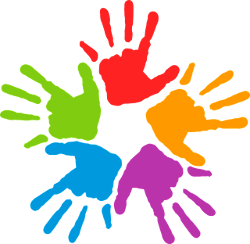 Last week, I was interviewed by an academician who was doing a study on community metrics. During the conversation, the topic of diversity in a community arose. Specifically, the question was "why is diversity important to a community?"
Last week, I was interviewed by an academician who was doing a study on community metrics. During the conversation, the topic of diversity in a community arose. Specifically, the question was "why is diversity important to a community?"
I have to admit, I did freeze for a moment. Not really because I didn't have an answer, but because that's like asking "why is the Sun important?" and you don't want your answer to sound stupidly obvious ("because we'd all be dead"), as opposed to more thoughtful ("because 3 degrees Kelvin is rather chilly").
The diversity question is frustrating to me because my knee-jerk answer is "because we don't live in an all-X world" and "it's the right thing to do" can seem like platitudes. Thinking about it a little more, a more compelling reason dawned on me: creativity is directly proportional to diversity.
Here's my thinking. I am a 50-something Midwestern white man with a public-school upbringing and a bachelors degree from a private liberal arts college. So, if you were to put me in a work environment with a group of similar people, it is very likely I would find a lot of common social ground. We would share many cultural references and insider social cues. For instance, I would not have to explain Harry Carey and his ability to go through an entire inning without actually mentioning the game to every person in the room, because some people from my social-economic age group would just "get it."
Obviously, this kind of social shorthand could exist across age, race, and gender lines, too. But you get the general idea. I think this is diversity's greatest enemy: it is too easy for people to settle into a "comfort zone" in social settings because it is seemingly easier.
But nothing worth having is ever easy.
Putting aside the ethical and moral surety, stick with this hypothetical workplace for a moment. And by the way, feel free to mentally substitute your demographic for the people in this workplace. A bunch of co-workers just like you, all working together.
Now say there is an especially complex problem given to you and your homogeneous team. Now the question becomes: how much faster/better will the solution be compared to a heterogeneous team's approach? For me, I would lay odds that it will be the diverse group who wins such a comparison handily. When everyone comes from a similar background, then the odds seem higher that problem-solving approaches, knowledge store, and cultural habits will create a number of similar solutions.
I want to be very clear here: this is not a statement saying "group X always does Y." Because there lies the path to over-generalization and, frankly, outright racism or sexism. Individuals within any demographic group will always be different and unique in their capabilities.
My belief is that any heterogeneous group is going to have far less chance of creative overlap right from the start.
This is why, when small-minded people say "we can't work with X people because they do Y differently" (the implication being they somehow do it worse), it's ridiculous. Expecting one person to follow your set of expectations based on how they look, where they're from, who they sleep with, or what they worship is the dumbest thing ever to carry in your head. Stop it.
All you can be sure of is that they are surely different than you and that's what you want and need. Different backgrounds means different experiences, problem-solving skills, and ultimately brings more creativity to the group. Diversity is always right morally and ethically, but from the stand-point of efficiency, even from the somewhat morally ambiguous business bottom-line, diversity wins over all.
Does diversity lead to more potential misunderstandings and mistakes? I know it does, having removed my foot from my mouth many many times. Socially, diversity is harder, which is why we get lazy and self-group in similar communities of people. But the payoff for working harder at this is not just a moral win but a productivity win as well.
Image under CC0 1.0 license.
À propos de l'auteur
Brian Proffitt is Senior Manager, Community Outreach within Red Hat's Open Source Program Office, focusing on enablement, community metrics and foundation and trade organization relationships. Brian's experience with community management includes knowledge of community onboarding, community health and business alignment. Prior to joining Red Hat in 2013, he was a technology journalist with a focus on Linux and open source, and the author of 22 consumer technology books.
Parcourir par canal
Automatisation
Les dernières actualités en matière de plateforme d'automatisation qui couvre la technologie, les équipes et les environnements
Intelligence artificielle
Actualité sur les plateformes qui permettent aux clients d'exécuter des charges de travail d'IA sur tout type d'environnement
Services cloud
En savoir plus sur notre gamme de services cloud gérés
Sécurité
Les dernières actualités sur la façon dont nous réduisons les risques dans tous les environnements et technologies
Edge computing
Actualité sur les plateformes qui simplifient les opérations en périphérie
Infrastructure
Les dernières nouveautés sur la plateforme Linux d'entreprise leader au monde
Applications
À l’intérieur de nos solutions aux défis d’application les plus difficiles
Programmes originaux
Histoires passionnantes de créateurs et de leaders de technologies d'entreprise
Produits
- Red Hat Enterprise Linux
- Red Hat OpenShift
- Red Hat Ansible Automation Platform
- Services cloud
- Voir tous les produits
Outils
- Formation et certification
- Mon compte
- Ressources développeurs
- Assistance client
- Calculateur de valeur Red Hat
- Red Hat Ecosystem Catalog
- Rechercher un partenaire
Essayer, acheter et vendre
Communication
- Contacter le service commercial
- Contactez notre service clientèle
- Contacter le service de formation
- Réseaux sociaux
À propos de Red Hat
Premier éditeur mondial de solutions Open Source pour les entreprises, nous fournissons des technologies Linux, cloud, de conteneurs et Kubernetes. Nous proposons des solutions stables qui aident les entreprises à jongler avec les divers environnements et plateformes, du cœur du datacenter à la périphérie du réseau.
Sélectionner une langue
Red Hat legal and privacy links
- À propos de Red Hat
- Carrières
- Événements
- Bureaux
- Contacter Red Hat
- Lire le blog Red Hat
- Diversité, équité et inclusion
- Cool Stuff Store
- Red Hat Summit

